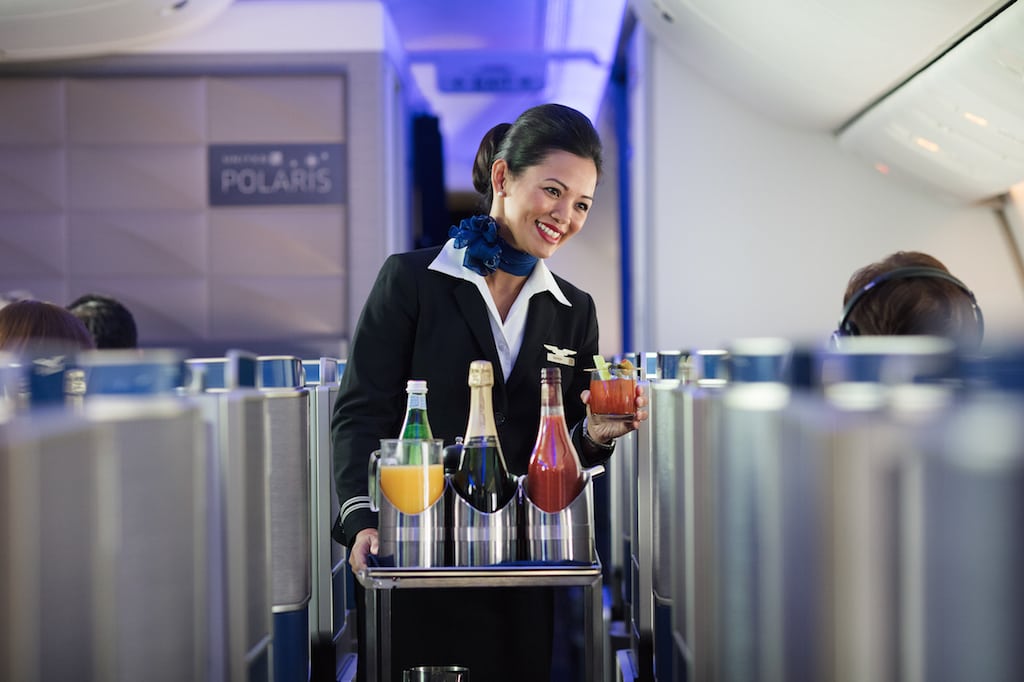Skift Take
United's Scott Kirby and Airbnb's Brian Chesky make for strange bedfellows. Both believe hybrid work models will lead to permanent changes in how their respective companies operate.
Do you remember when the airline industry embraced existential concerns early in the pandemic about a drop-off in business travel, and questioned how leisure travel could possibly fill the gap?
During their third quarter earnings call Wednesday, United Airlines officials expressed optimism that business travel would almost certainly pick up in the future from current levels, but touted the “permanent” advantageous changes, including new efficiencies, that current hybrid work environments have created for the airline.
“There’s been a permanent structural change in leisure demand because of the flexibility that hybrid work allows,” CEO Scott Kirby said.
Chief Commercial Officer Andrew Nocella told analysts that traditional troughs in demand on Tuesdays and Wednesdays, and holiday traffic spread out beyond a weekend or several days would enable United to operate a “less peak schedule,” leading to “really enormous efficiency gains.”
“I think [it is] a really interesting opportunity for United as it transitions from a very peaky schedule to something that’s less peaked,” Nocella said.
Even “secondary holidays are incredibly strong, not just the primary holidays,” he added.
Nocella said “that the marginal cost of an ASM (available seat mile) in February is very different than that in July.”
Kirby acknowledged that pessimism is rampant about the global economy, but several factors will help the the airline industry, including United, in “overcoming those macro headwinds.”
Kirby cited the “permanent structural changes” that flexible work environments have created.
“And regardless of what you think demand for business travel will ultimately return to 100 percent or something less, it almost certainly is going higher from here,” Kirby said.
There eventually will be an additional upside because the global airline industry currently is 10-15 percent smaller compared with pre-Covid gross domestic product because of a variety of factors, including pilot shortages, aircraft delivery shortfalls, and airport constraints, Kirby said.
An upsurge in leisure travel and airline efficiencies tied to pent-up demand or flexible work arrangements won’t in themselves make United whole, although the airline is witnessing “incredible strength” from flyers booking coach seats, and the Premium Plus cabin, Nocella said.
“The more leisure-oriented nature of some of the Polaris [business class] traffic today does fly at a lower yield than has traditionally been in that cabin,” Nocella said. “So as that returns to normal, however fast or slow that occurs, that will continue to provide, I think, more of a tailwind going forward.”
United said during the third quarter it beat analysts’ expectation on “operating revenue, unit costs and adjusted operating margin.” The airline’s operating revenue in the third quarter of $12.9 billion was 13.2 percent higher than the comparable period in 2019.
United’s notched third quarter net income of $942 million, almost twice that of the same period a year ago, but still well below the more than $1 billion in profits it generated in the third quarter of 2019.
United said it expects its operating margin in the fourth quarter of 2022 to exceed 2019 marks for the first time.
Kirby said he’d wager that many of the analysts or investors listening to the company’s earnings call Wednesday “have taken an extra trip or two this year because you can work remotely for a couple of those days.”
Added Kirby: “This is not pent-up demand. It’s the new normal.”
The Daily Newsletter
Our daily coverage of the global travel industry. Written by editors and analysts from across Skift’s brands.
Have a confidential tip for Skift? Get in touch
Tags: business travel, corporate travel, covid-19, digital nomads, earnings, leisure travel, united airlines, work from home
Photo credit: Pictured, a flight attendant in United's Polaris business class section of an aircraft. United is seeing strong demand for its Polaris business class seats from leisure travelers, although they don't generally pay as much for the lie-flat seats. United Airlines
